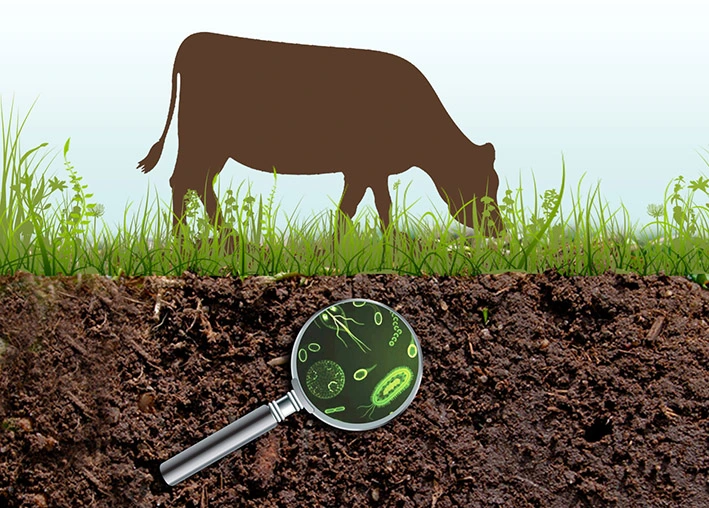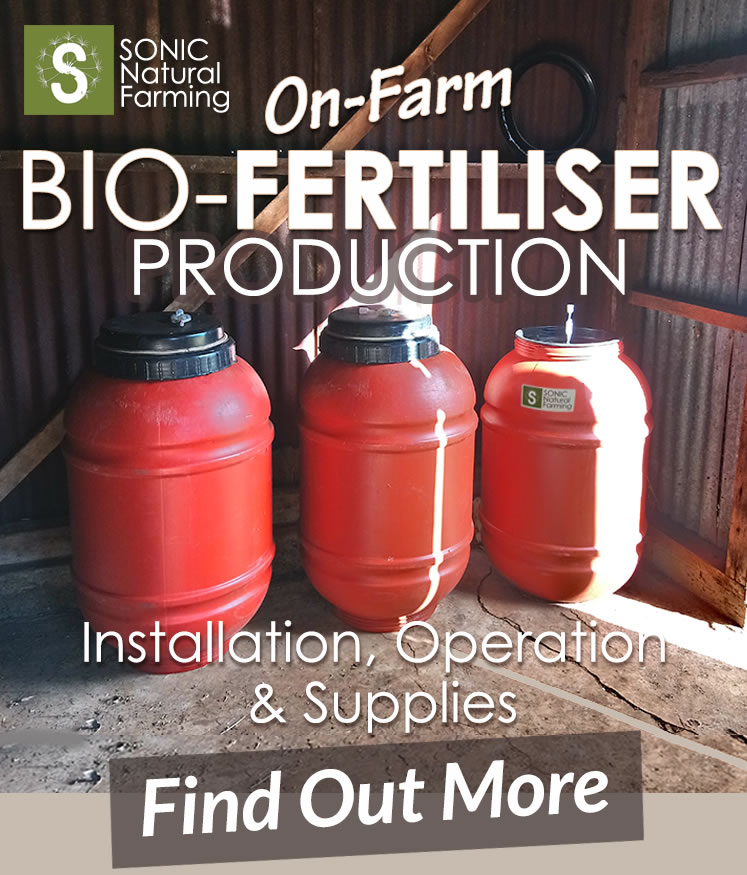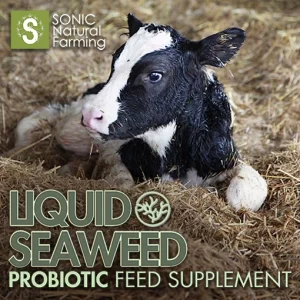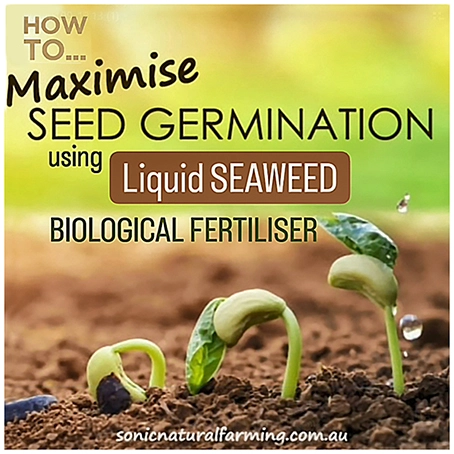Fermentation is a process that has been utilised for centuries in various industries, including the production of biological fertilisers. Biofertilisers are organic fertilisers that are derived from natural sources and provide essential nutrients to plants, and beneficial biology for the soil. In this article we will discuss some of the key benefits of using cold fermentation methods in the production of biological fertilisers.
Fermentation Captures Organic Minerals
One of the key advantages of using fermentation to produce biofertiliser is its ability to maintain important minerals, unlocking them and making them bio-available.
Organic minerals refer to naturally occurring minerals found in organic matter such as fish or seaweed. These minerals include calcium, magnesium, phosphorus, potassium, and sulfur – all of which are essential for healthy plant growth.
By converting organic minerals, through anaerobic fermentation, they become more readily available for plants to uptake
SONIC Liquid Fish Hydrolysate Biofertiliser getting decanted after fermentation is complete, (above image).
Fermentation Helps Retain Essential Trace Elements
Using fermentation to produce biofertilisers helps to release and unlock essential trace elements that are present in the organic matter. As the organic matter undergoes fermentation, it breaks down complex compounds into simpler forms.
During this process, essential trace elements such as zinc, iron, manganese, copper, and boron are released from organic matter and become more accessible to plants.
Trace elements are vital for various physiological processes within plants, including enzyme activation, photosynthesis, and nutrient transport
Fermentation Harnesses Complex Amino Chains
During the fermentation process, organic matter undergoes decomposition by microorganisms. These microorganisms break down complex organic compounds into simpler forms. These reactions involve the enzymatic degradation of complex compounds into simpler molecules, including amino acids.
Amino acids are the building blocks of proteins and play a crucial role in plant growth and development
The amino acid sequence of a protein plays a crucial role in determining its overall structure and function. Proteins are composed of long chains of amino acids, and the specific sequence in which these amino acids are arranged is essential for the protein’s three-dimensional structure.
The arrangement of amino acids determines how the protein folds and interacts with other molecules in its environment. This folding process is critical because the shape of a protein directly influences its biochemical function. Proteins with different amino acid sequences will fold into distinct structures, leading to differences in their functions.
The bubbles of yeasts forming at the top of a processing SONIC Biological Fertiliser brew, is the activity of beneficial microbes digesting and transforming the organic matter. (Above video).
How Does Fermentation Work?
Using cold fermentation to produce biological fertilisers involves creating an environment conducive to the growth of beneficial microorganisms. This typically includes providing a glucose source (such as molasses, sugars or plant residues) and maintaining optimal temperatures.
In a healthy fermentation process, beneficial microbes actively convert the organic ingredients, such as fish or seaweed, into a plant available form, which means the nutrients become bio-available and easy to uptake by the soil, plants and animals.
The activity of microorganisms is the core of Biological Fertiliser, which has both microbial fertiliser and mineral fertiliser effects. Biofertilisers are used to improve soil fertility and provide organic plant nutrition.
How Biological Fertilisers Contribute to Soil Health
Fermented biological fertilisers offer several advantages over traditional fertilisers. They not only provide essential nutrients but also improve soil structure, increase water-holding capacity, suppress harmful pathogens, and enhance nutrient availability to plants over an extended period.
Enhanced Nutrient Availability
Through the process of fermentation, organic matter in fertilisers breaks down into simpler compounds that are easier for plants to absorb. This leads to improved nutrient availability in the soil, ensuring that plants receive a balanced diet of essential elements for optimal growth.
Due to the increase in nutrient solubility, it means that essential elements such as nitrogen, phosphorus, and potassium are released from their bound forms and become more soluble in water. Consequently, plants can access these nutrients more easily, reducing the risk of nutrient deficiencies.
Increased Microbial Activity in the Soil
Furthermore, biological fertilisers processed through natural fermentation have been found to greatly enhance microbial activity in the soil, leading to improved soil fertility.
Microbial activity in the soil is crucial for nutrient cycling and availability
Beneficial microorganisms play a key role in decomposing organic matter, releasing essential nutrients like nitrogen, phosphorus, and potassium. They also help improve soil structure, water-holding capacity, and overall soil health.
By processing biological fertilisers through a natural fermentation process, we can enhance the population and diversity of beneficial microorganisms in the fertiliser and subsequently in the soil. This leads to increased nutrient availability for plants and improved plant growth. Additionally, these incredible microorganisms can also suppress harmful pathogens and pests, reducing the need for chemical interventions.
Benefits of Boosting Beneficial Microbes in the Soil
- Enriches the ecosystem
- Controls pathogens
- Fixes atmospheric nitrogen
- Promotes healthy seed germination
- Provides plant immunity
- Increases plant brix levels
By undergoing fermentation, biological fertilisers become enriched with bioavailable nutrients and beneficial microbial activity. This results achieved by utilising biofertilisers fresh includes improved plant growth, soil fertility and productivity, while reducing the risk of nutrient leaching or runoff into water sources.
Overall, fermentation is a valuable technique used in agriculture to maximise the effectiveness of fertilisers, while providing environmentally friendly alternatives that reduce reliance on synthetic fertilisers, and promote a balanced nutrient management approach.
RELATED EXTERNAL LINKS



















